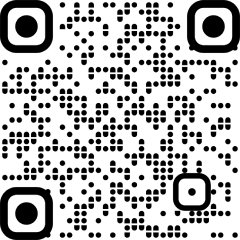Melbourne: Anorexia Nervosa is a serious illness Mental health disorders Where people fear gaining weight. People suffering from this disorder have a distorted body image and are obsessed with the fact that their bodies are too big. They usually manage this through restricted eating, leading to serious medical consequences of malnutrition.
Anorexia has one of the highest mortality rates of any mental illness. Yet there is currently no effective drug treatment and the consequences are dire. Psychotherapy (Talk therapy) methods are bad. So we desperately need new and better treatments.
Psilocybincommonly known as Magic mushroomsThere’s one such new treatment. But while it looks promising initially, you won’t see it used in clinical practice just yet – more research is needed to check whether it’s safe and effective.
What does the treatment involve?
The treatment involves the patient taking doses of psilocybin in a safe environment, usually a specially set up clinic. The patient undergoes preparation therapy before the dosing session and integration therapy afterwards.
Psilocybin, which is extracted from mushrooms, is a psychedelic, which means it can alter thinking, time and emotions and often causes hallucinations. It also has the ability to break patients out of their rigid thinking patterns.
Psilocybin is not given alone, but instead combined with structured psychotherapy sessions to help the patient understand their experiences and the changes in their thinking. This is an important part of treatment.
What does the research show?
Research has shown that psilocybin-assisted psychotherapy has better effects after one or two dosing sessions, spaced a few weeks apart. Most research so far has targeted depression.
Psilocybin increases cognitive flexibility — our ability to adjust the way we think according to changing environments or demands. Researchers believe psilocybin may improve symptoms of conditions such as depression and alcohol use disorder, which are marked by rigid thinking styles.
People with anorexia also struggle with similarly rigid thinking patterns. That’s why researchers and clinicians have recently focused their attention on anorexia.
In 2023, a small pilot study of ten women with anorexia was published in the journal Naturopathy. It showed that psilocybin-assisted psychotherapy (with 25 mg of psilocybin) was safe and acceptable. There were no significant side effects and participants reported having valuable experiences.
Although this trial was not a formal efficacy trial, 40 percent of patients showed a significant decline in eating disorder behaviors.
However, the trial only had one dosing session and no long-term follow-up, so further research is needed.
A recent animal study on rats investigated whether rigid thinking could be improved in rats when given psilocybin. After psilocybin, the rats gained weight and their thinking became more flexible (using a reversal learning task). These positive changes were related to the serotonin neurotransmitter system, which regulates mood, behavior, and satiety (feeling full).
Brain imaging studies in humans suggest that people with anorexia have serotonin disturbances. Psilocybin-assisted psychotherapy is showing promising results in modulating serotonin disturbances and cognitive flexibility, which have been found to be problematic in anorexia.
Research on animals can provide unique information about the brain that sometimes cannot be investigated in living humans. But animal models can never accurately mimic the complex nature of human behaviour and chronic mental health conditions.
What’s next for research?
Ahead clinical trials There’s a huge need for this in humans – and a research team is working on it University of Sydney And ours at Swinburne.
Our trial will involve an initial 5-mg dose followed by two 25-mg doses spaced several weeks apart. The initial low dose is intended to help prepare participants for a new and somewhat unexpected experience.
Our trial will examine the utility of providing psychotherapy that directly addresses body image disturbance. We are also investigating whether involving a family member or close friend in treatment increases support for their loved one.
Data from other mental health conditions show that not everyone benefits, some people have a worse experience and their mental health deteriorates. So this treatment will not be for everyone. It is important to find out who will respond most and under what circumstances.
New trials and ongoing trials will be crucial in understanding whether psilocybin-assisted psychotherapy is a safe and effective treatment for anorexia, and what the optimal conditions are to improve patient response. But we are some way off from seeing this treatment in the clinic. The biggest issue is the cost of this intervention and how it will be funded.
magic-mushrooms-may-one-day-treat-anorexia-but-not-just-yet-et-healthworld






